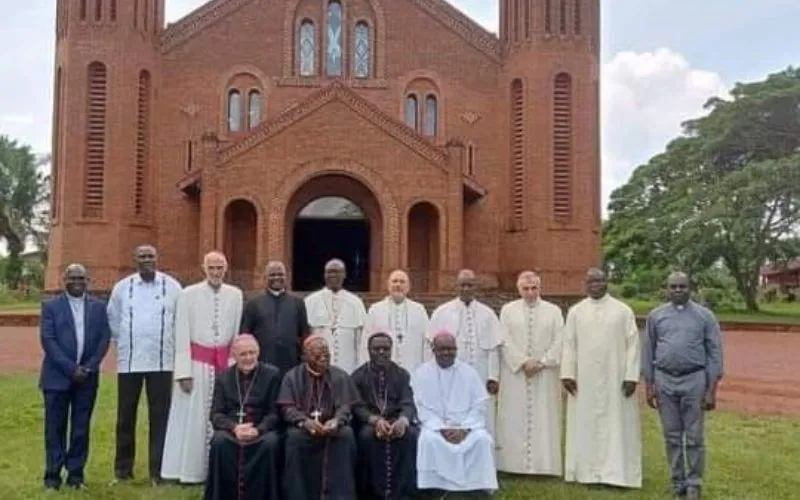In the statement issued under the title, “Take courage; get up, he is calling you”, which recalls Jesus’ call for Bartimaeus, the blind man, recorded in Mark 10:49, the Catholic Bishops compare CAR’s ailments to “structures of sin” that are preventing the country from progress.
“All these behaviors are akin to structures of sin, hindering our country's recovery and condemning us to remain Bartimaeus sitting by the side of the road of history,” CECA members say.
They add, “The recent history of our country has brought us to the bottom of the abyss. Some believe that the Central African Republic can no longer rise to become the subject and protagonist of its own history.”
“Once again, the faith and resilience of the blind Bartimaeus come to the rescue of our despondency,” Catholic Bishops in CAR say, and explain, “Bartimaeus refuses to remain in his situation. He rejects all fatality. He cries out to Jesus because he believes him capable of bringing him out of the abyss in which he finds himself. His cry of distress resounds in Jesus who, unlike the crowd, stops and orders the beggar to be called.”
“There are still a lot of people in our country today, whose dignity is scorned and trampled upon,” they say, recalling the situation of Bartimaeus before Jesus called for him.
“This is the case, for example, of people living with disabilities, the deaf and dumb, minorities (pygmies), women and children who are victims of violence and abuse, widows and orphans who are dispossessed and mistreated, elderly people left to their own devices, people accused of witchcraft who are victims of mob justice, people exploited in mining sites, especially children, etc,” CECA members continue.
They lament that in CAR, “numerous interesting recommendations of national, political, and republican forums and dialogues designed to pave the way for recovery, justice, reconciliation, and peace have remained unheeded, and constitute a catalog of good intentions with no future.”
“Bartimaeus has the courage, the will, and the determination to get out of his situation. His cry of distress is, according to Pope Francis, the ideal paradigm of the beautiful obstinacy of those who seek grace and who knock at the door of God's heart,” they emphasize.
CECA members say, “The Word of God is creative and has the power to transform man and all man, to renew him and put him back on his feet.”
They acknowledge with appreciation the resilience of the people of God in CAR amid challenges, saying, “Despite the ups and downs of our country's repeated military and political crises, despite the traumas, deep suffering, and indelible scars that mark our history, our people have always been resilient.”








